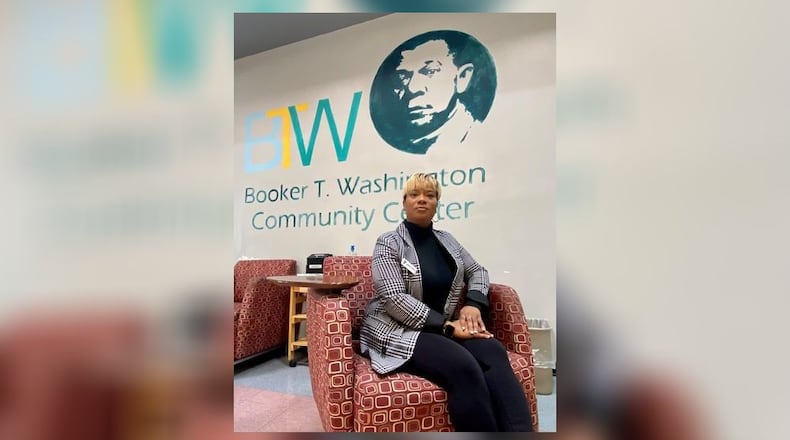“We are in not only an inflection point, but we are in a massive transformation in how we collect and how we tell stories,” said Coates. “We have a whole future group of historians and sociologists and psychologists that are going to have access to an infinite wealth of information. This generation that’s with us right now, their whole lives have been recorded on social media. It’s there, and the internet does not go away.
“We’ve got 20, 30 years of these stories, and this generation, unlike many others, everything they do, they want to put it on social media ― good, bad, or indifferent,” Coates said.
Not only will there be tons of material that future historians, social commentators, and scholars will have to draw upon that will comprise the multiple histories of Americans, Coates said, “They’re going to be very, very multifaceted, and right now we are in an inflection point were people are actively engaged in ‘what is America going to look like in 10, 15, 20 years from now.’”
In a decade or two from now, the future will be in the hands of kids like Irin Oatis, a 12-year-old who wants to “make my own history” by being a computer and software engineer, and said, “I want to see more of our wonderful Black people prospering.” While there are challenges Black people face, he said he remains hopeful in his future because of past leaders, like the Rev. Martin Luther King Jr. ― a man Irin admires, saying the civil rights leader “spoke proudly” and “did what he had to do” to fight for equal and civil rights.
The future will also be shaped by 12-year-old Mikayah Walker, who admires the heroic actions of Harriet Tubman as she not only escaped as a slave but “went back to save her family, and went back to get other people. She risked her life to save a lot of people on the Underground Railroad.” For her history, besides being a famous actress, Mikayah said she wants her legacy to show generations behind her they should “choose your own dream,” and while it’s okay to accept help along the way, “it’s important to make your own way, and keep on trying. You can’t cheat your way to success.”
Kierra Wilson, 10, civil rights activist Ruby Bridges, the first African-American student to integrate an elementary school in the South in 1954. “She was a little Black girl who liked school, and I like school,” Kierra said. Bridges remains to this day an activist for racial equality, and Wilson also wants to see that goal be accomplished when we have “no more racism” and the world, not just America, is a safer place. Because when she hears about violence and other atrocities against Black people, Wilson said, “I think it’s wrong and they (perpetrators) shouldn’t be doing that, and we all should have our time to live on this Earth.”
Local leaders optimistic
Knowing that Black children are not only learning but are inspired by their culture gives hope for Ebony Brock, the director at the Booker T. Washington Community Center on South Front Street in Hamilton, where these and other children can often be found many days after school.
“I’m very optimistic about our future, and I think a lot of it is because of the work that I do with our children,” she said. “For me, it’s rather difficult not to find hope, even though I have a unique position because I see their challenges, I see their circumstances, but if you look into their eyes, you can see there’s a little glimmer in some of them of hope. For me, all I need to see is a glimmer.”
Brock hopes that many of the children she sees running through the halls of the Booker T. Washington Center become our future leaders in the country’s cities and local, state, and federal governments. And just like other cultures, races, and ethnicities, young Black children need to learn their past in order to open those doors into the future.
“Acknowledge it, own it,” Brock said of the fight Blacks have had to endure throughout American history. “And then the question becomes a question of ‘What needs to be done so this doesn’t continue to happen, and our children and their children live in a different world?’ For me, that’s the goal.”
The nation will only grow stronger as the stories of all cultures, races, and ethnicities are told and understood, because Coates said, “It is in our interest that we understand these multiple truths because it makes us a stronger nation. It will not make us a house divided, but a united nation of Americans. We’re different; those differences aren’t going away. In fact, those differences are what makes us great. It makes us special. We are the most diverse nation in the world, that is what has been our secret weapon, that strength of our diversity.”
But the question of “Why do we still have a Black History Month?” is still asked today, Brock said, and when she hears it, her response is: “If we still have to explain why the celebration of Black culture is important, that lets us know how much more work we have yet to do.”
Just like when Americans celebrate religious high holidays or the cultures of others, such as the Irish and Germans, Black history is celebrated because it matters not only to the Black community but also to American history.
“If we still have to explain why the celebration of Black culture is important, that lets us know how much more work we have yet to do."
About the Author

